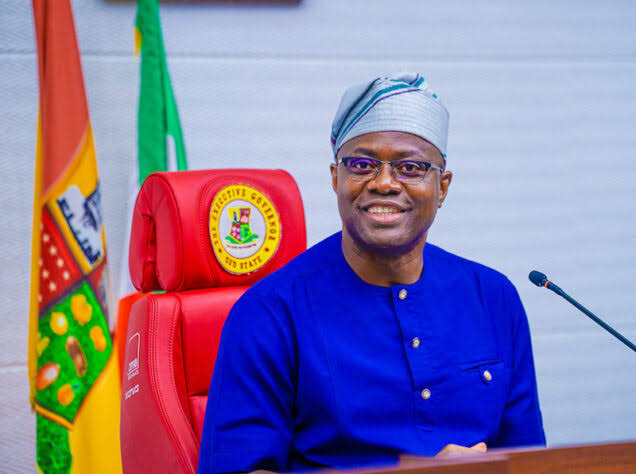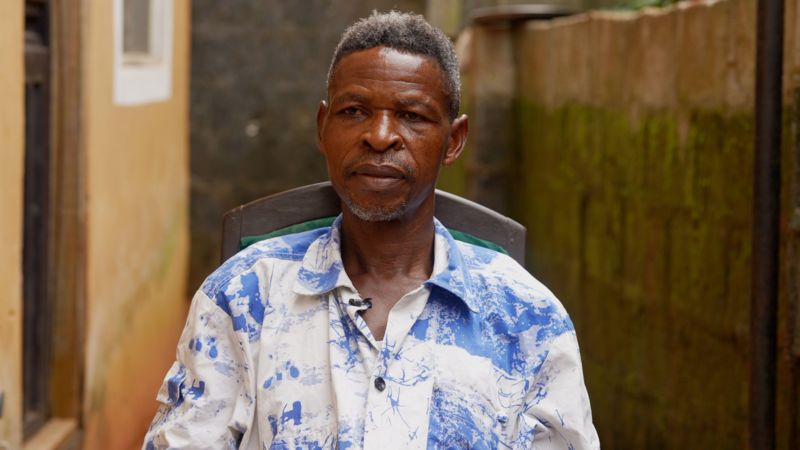Osun Education: The Investment And The Gains
Educational system in the State of Osun under the leadership of Governor Rauf Aregbesola has been characterised by several innovations that have received accolades home and abroad. The massive construction of new schools, Osun School Feeding Programmes (OMEAL), introduction of Opon Imo amongst other innovations have not only placed Osun on the world map of educational development, it has prepared ground for a brighter future for the students of public schools in the state.
KAZEEM MOHAMMED in this piece writes on the innovations that have been brought into the education system and the gains therein.
Chief Obafemi Awolowo, in his book, The Peoples’ Republic, says, “Any system of education which does not help a man to have a healthy and sound body and alert brain, and balanced and disciplined instinctive urges, is both misconceived and dangerous.”
This belief must have been the guiding principle for Governor Rauf Aregbesola in conceiving his six-point Integral Action Plan, where the “Promotion of Functional Education” is encapsulated. The pre-implementation and the implementation stages of the Osun state government policy on education since 2010 have clearly shown the commitment of the administration to ensure a healthy and sound body and alert brain, as well as balanced and disciplined instinct.
The vision of the administration, even before coming to office, was said to be geared towards radically increasing access to basic education, in furtherance to the vision of Awolowo and in line with Millennium Development Goal of achieving Universal Primary Education.
It was a public knowledge that, the education system was in comatose prior to Aregbesola’s emergence in office, but realizing the sorry state of the system, in February 2011, about three months after assumption of office, Aregbesola’s administration organised an Education Summit to chart a new way forward in the education sector of the state. The summit, chaired by the Nobel Laureate, Prof Wole Soyinka with other experienced stakeholders, identified the solutions to the perennial problems in the Education system in Nigeria and Osun in particular where strategies were developed as the way out. These strategies are the ones being currently implemented by the state government and it has scored the state high.
Other stakeholders, which included, notable world-class educationists like Prof Peter Okebukola, Dr Akin Fapohunda, Dr Isaac Agboola, Prof Sola Adeyeye, Mr Lere Osundina among others agreed on reclassification of schools into elementary, middle and high schoo.ls, from the then existing primary, junior and secondary levels. A comprehensive overhaul of physical and human component of the education system was also recommended.
The elementary is a neighbourhood school for pupils in the 1st to 4th grade from the old primary 1 to 4, the middle school is for the 5th to 9th grade, which is primary 5 to JSS 3, while the high school comprises of students from 10th to 12th grade, which is senior secondary school 1 to 3.
However, while the physical infrastructure component of the reclassification is being carried out systematically with the building of elementary, middle and high schools across the state, the human and social component such as recruitment of teachers, provision of instructional materials, psychological and social support through value re-orientation, revival of ideal virtues such as of hard work, honesty, discipline, determination, revival of Boys and Girls Clubs, calisthenics activities have also caught the attention of the government in line with the recommendation of the summit.
Governor Aregbesola said recently at the commissioning of Government Middle School and Elementary School both in Osogbo that the education revolution was part of his administration’s resolves to build a new man in every child in the state, a decision which he said would help to sustain the future of the state.
Besides, the review of the Osun Elementary School Feeding and Health Programme now known as O-MEALS is one of the few surviving school meal programmes in the country. It was formerly known as the Home Grown School Feeding and Health Programme (HGSFP), but has now been restructured and enhanced by the Aregbesola administration.
The programme has not only been successful, records showed that it has helped increase elementary school enrolment by at least of 25 per cent since the commencement of the revised programme in 2012. Findings have however showed that the enrolments were not from new entrants alone, but also from those withdrawn from Private Schools by their parents, who have seen commitment in the government education policy.
A total number of 3,007 food vendors were initially trained and employed by the government to serve nutritious meals for pupils in elementary 1, 2 , 3 and 4. The government also facilitated provision of cooking utensils for each of the caterers at minimal cost, while First Bank PLC at the initial stage granted a loan of ¦ 124.5 million to 123 cooperative groups of food vendors for the purchase of cooking utensils. The government also agreed to pay the interest accrued on the loan facility and food vendors are to repay the loan within 36 months.
However, Osun has become a Mecca of sort for many states in Nigeria who have seen the need to emulate the strategy adopted in the school feeding programme and have come visiting to learn the system. As if that was not enough, the Federal Government has adopted the Osun system in its school feeding programme. This is no doubt a plus for the administration of Aregbesola.
This scheme has gained international endorsement. In November 2012, Partnership for Child Development (PCD) United Kingdom and the Government of the State of Osun signed the Osun Elementary School Feeding Transition Strategy Plan Document to further strengthen the programme. Thereafter, the government of the United Kingdom invited Aregbesola to address the UK’s House of Common, to explain and ‘teach’ how the programme is done in Osun.
However, Another policy of the government that has received local and international accolade is the massive construction of schools across the state, which has provided conducive physical atmosphere to aid teaching and learning. The revamping of the public school infrastructure through the building of new school structures to reflect the recommendations of the Osun Education Summit is seen to be a radical idea to provide the best in terms of infrastructural facilities for the schools.
Available record has shown that the administration of Aregbesola has constructed 96 new public schools, out of which there are 40 elementary, 45 middle and 11 high schools across the nooks and crannies of the state. This is just as several other elementary schools have been renovated across the state.
The state-of-the-art schools which were and others currently being built are of the world standard with all the facilities required in any standard educational institute anywhere in the world. With the quality of the schools, no one would ever believe that such could exist in Nigeria, except you are there.
The same seal with which elementary and middle schools were built was the approach taken to the High Schools. Some of the ones already completed and commissioned were, Osogbo Government High School, Osogbo; Ataoja Government High Schools, Osogbo; Wole Soyinka Government High School, Ejigbo; Ede Baptist High School, Ede amongst several others, while some are still ongoing. Visitation to some of the schools have clearly shown that the government is indeed committed to the development of education, as such structures could not be found anywhere else in Nigeria.
Going by the accolades that have been received home and abroad, Osun has entered the world map in the development of education with the massive construction of standard schools across the state.
Just last week, the Australian High Commissioner to Nigeria, Mr. Paul Lehmann during a visit to Osun said, he was proud of the achievements made by the Aregbesola administration, saying, the continued support given to education by the state would in no doubt bring a brighter future to the state and as well enhance the capacity of the state economically, socially and politically as education remains the bedrock of development in any society.
Lehmann said, “Educating young people will definitely revive the society and secure a better future for all because it is the only educated mind that advances the potentials of the society for the benefits of all. I have gone round the town. I have seen some of the interventions of this administration in all sectors most especially in education, agriculture and security.
“These are the major sectors on which government and governance are based. I was marveled when I visited some of the state-of-the-arts schools constructed by the Aregbesola led government.
“I have seen the good governance in action in Osun because the state has without any sense of doubt done so much on the need to affect the lives of her people positively as this could be deduced from all I saw”, he said.
It would also be recalled that President Muhammadu Buhari had in 2016 during the commissioning of the newly constructed Osogbo Government High School, Osogbo said, he was impressed by the Aregbesola investment in education, urging other states to emulate his gesture.
He said that the system adopted by Aregbesola administration was appropriate, cost-effective and must be emulated.
A parent of one of the student of Osogbo Government High School, Mr Kolade Ismail recounted that he was proud to have his children in the school, saying he has observed that the academic performances of his children have really improved.
Just as the government has invested hugely on the infrastructural development, it has also taken further steps through its investment in human capacity to gain competitive advantage with developed countries. Besides the frequent training and retraining of teachers, particularly at the elementary, middle and high schools. One other major project that has been seen to be beneficial to teaching and learning was the introduction of the popular Opon Imo (Computer Tablet of Knowledge).
The Aregbesola administration championed the inspiring innovations through the ground breaking project which is meant to utilise ICT and concisely tackle learning problems. The state, through its Opón Ìmò Technology Enhanced Learning System (OTELS), has developed a learning tool that could revolutionise learning in developing states around the world.
However, Governor Aregbesola at the commissioning of one of the newly-constructed schools in Osogbo had expressed displeasure at the appearance of some pupils in some of the public schools in the state, a situation which he described as worrisome in view of the heavy investments made in education by the state.
The Governor, who implored parents to always see to the welfare of their children said, henceforth, the state as part of its effort to restore discipline would start operation-check- your-dress among the public schools students.
He said the stand order would further strengthen discipline in public schools and as well encourage neatness among the pupils and students.










